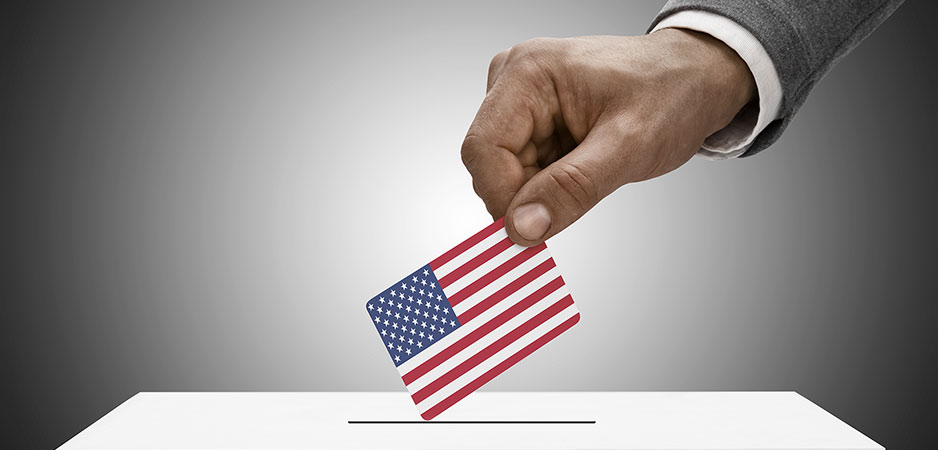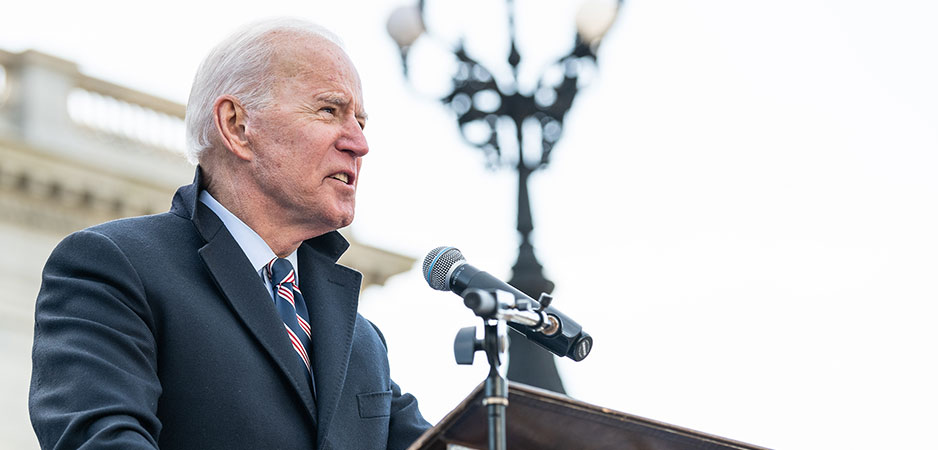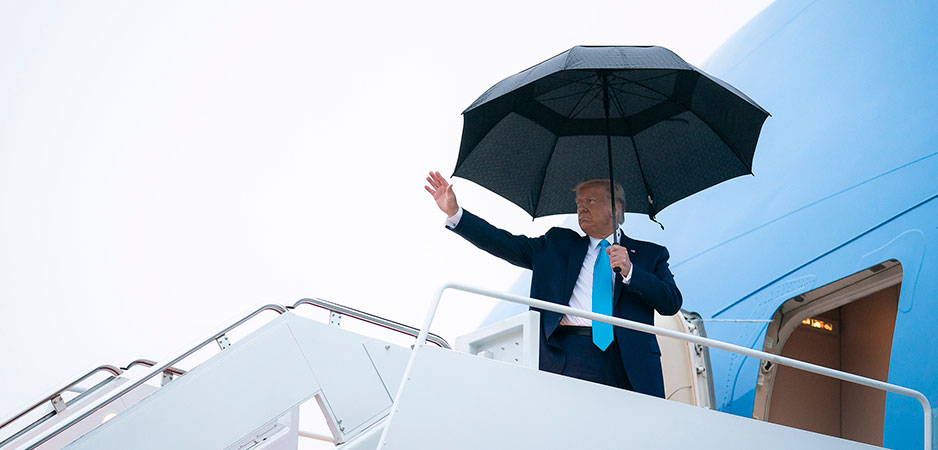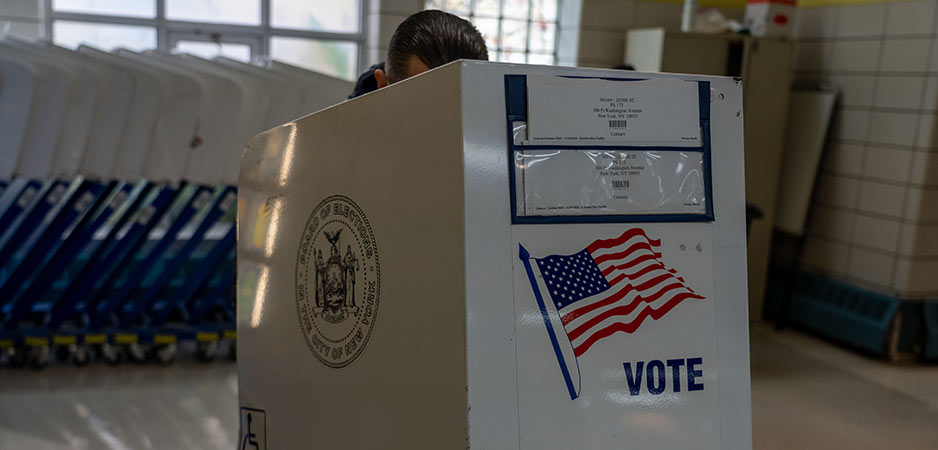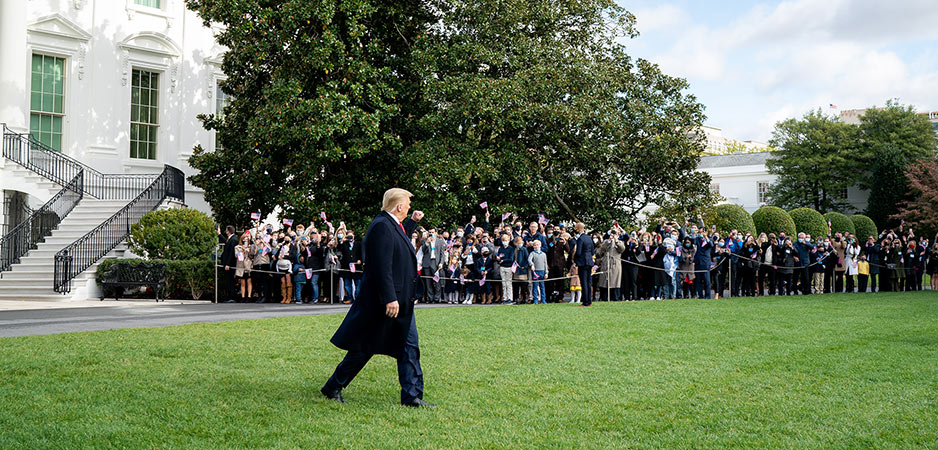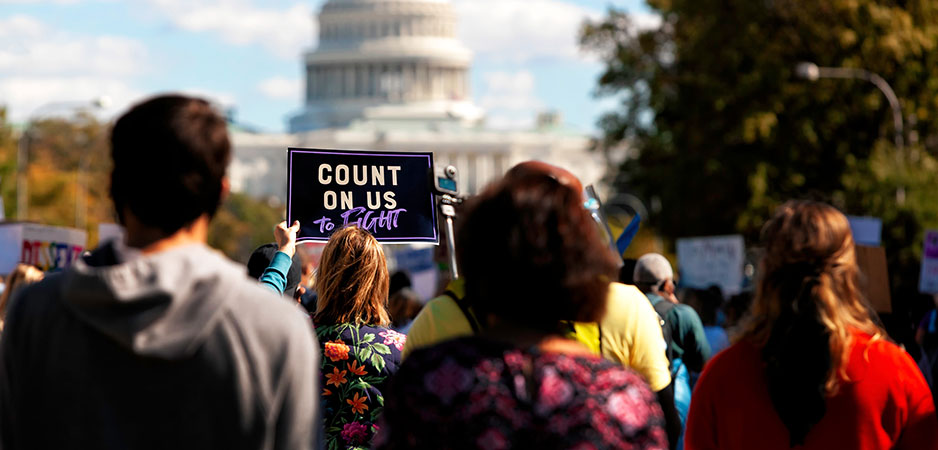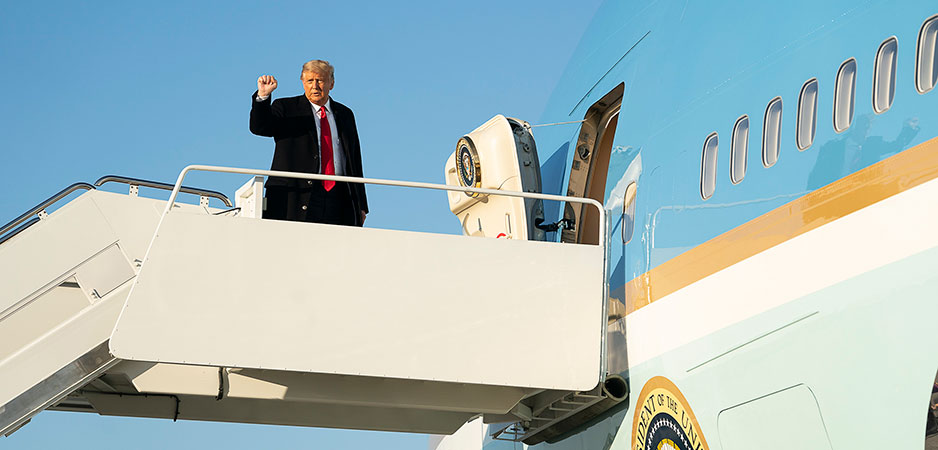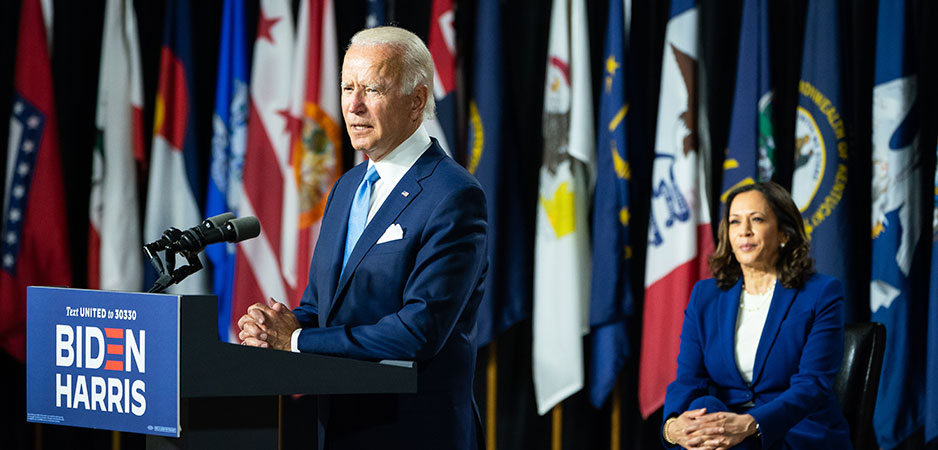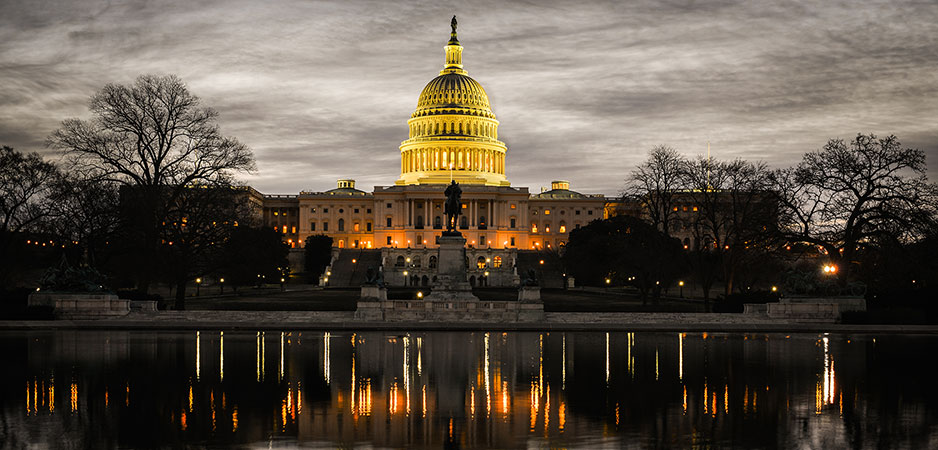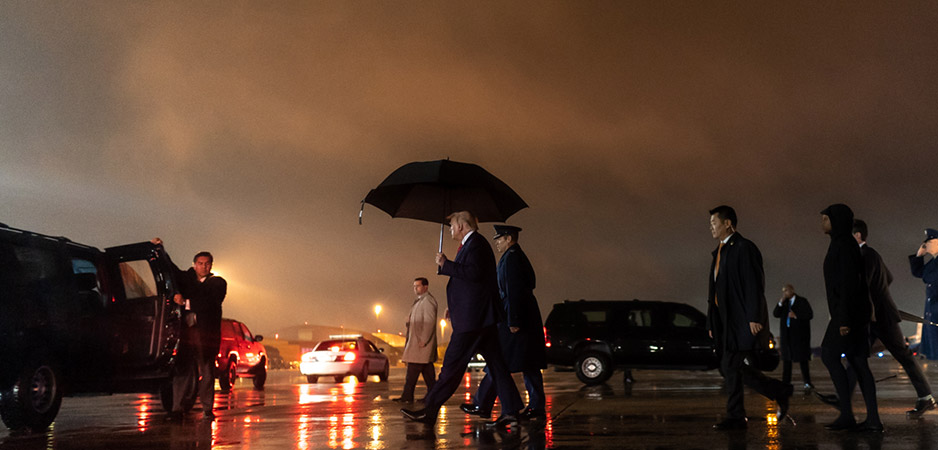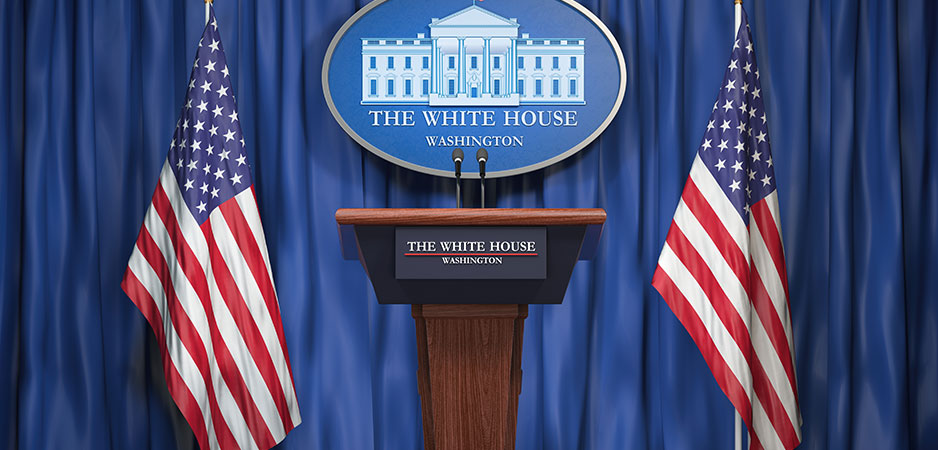Addressing months of speculation over the future of US policy toward Tehran, Iranian President Hassan Rouhani said on September 22 at the UN General Assembly, “We are not a bargaining chip in the US elections and domestic policy.” Earlier this year, Democratic presidential nominee Joe Biden said if he is elected, the US will rejoin the Joint Comprehensive Plan of Action (JCPOA) — the Iran nuclear deal — which the current administration withdrew from in May 2018. This set of the rumor mills about a major shift in Washington’s handling of Iran.
The JCPOA was signed in 2015 by the P5+1 group — the United States, Britain, France, Russia, China and Germany — and the Iranians in a diplomatic effort to prevent Iran from acquiring nuclear weapons. Yet today, the agreement is standing on its last legs. US President Donald Trump, who campaigned against the agreement during the 2016 presidential election, has imposed a policy of maximum pressure on Iran in order to force it to negotiate a better deal.
360° Context: The 2020 US Election Explained
For the Trump administration, an improved agreement would address Iran’s ballistic missile capabilities and its expansionist policies in the Middle East — two issues that the Obama administration and the European Union failed to incorporate in the JCPOA. This infuriated US allies in the Middle East, including the Kingdom of Saudi Arabia, which in particular has been on the receiving end of Iran’s destabilizing actions in the Gulf.
With the presidential election on November 3, the question of whether US policy toward Iran will change should Biden win the keys to the White House is attracting the attention of pundits and policymakers in the Arab region.
Joe Biden’s Position on Iran
Biden, who was vice president under the Obama administration, explained in a recent op-ed his proposed position regarding Iran. He said, “I have no illusions about the challenges the regime in Iran poses to America’s security interests, to our friends and partners and to [Iran’s] own people.” He listed four key principles as he outlined his approach.
First, he promised that a Biden administration would prevent Iran from acquiring a nuclear weapon. Second, he committed himself to rejoin the JCPOA if Iran returns to “strict compliance with the nuclear deal,” and only as “a starting point for follow-on negotiations.” In Biden’s words, these negotiations would aim at strengthening and extending the nuclear deal’s provisions and addressing “other issues of concern.” Third, he made a commitment to “push back against Iran‘s destabilizing activities” in the Middle East, which threaten US allies in the region. He also promised to continue to use “targeted sanctions against Iran‘s human rights abuses, its support for terrorism and ballistic missile program.”
Finally, he said, if the Iranians choose to threaten vital American interests and troops in the region, the US would not hesitate to confront them. Despite this, Biden wrote that he is “ready to walk the path of diplomacy if Iran takes steps to show it is ready too.”
But Will His Policy Be Any Different to Trump’s?
In relation to Saudi Arabia, Biden issued a statement on the second anniversary of the killing of Saudi journalist Jamal Khashoggi in which he said, “Under a Biden-Harris administration, we will reassess our relationship with the Kingdom, end U.S. support for Saudi Arabia’s war in Yemen, and make sure America does not check its values at the door to sell arms or buy oil.”
Although Biden’s approach is a departure from Trump’s maximum pressure on Iran and with regard to Saudi Arabia in its intervention in Yemen, it is possible that Biden might end up — at least concerning Iran —applying Trump’s same tactics. This is partly because, according to Biden himself, Iran has stockpiled 10 times as much enriched uranium since Trump has been in office. This is further complicated by the fact there is no guarantee that Iran will surrender its stockpiles to the International Atomic Energy Agency.
Additionally, Iran has repeatedly declared that it will not negotiate additional provisions to the JCPOA, which is in direct conflict with Biden’s intention to put enforce additional restrictions on Tehran. Moreover, putting pressure on Iran to end its destabilizing regional activities, as Biden has promised, would certainly lead to points of confrontation between the two countries, especially in Iraq and Syria. If any of these scenarios take place, a Biden administration would be forced to impose even tougher sanctions on Iran with the help of EU countries.
Three Key Factors
Biden’s decision to rejoin the JCPOA rests on three issues. The first is the balance of power within Congress between the Republicans and the Democrats. The second is how Iran fits into his overall policy toward China. Finally, the position of the Saudi kingdom and its allies regarding any future agreement with Iran would play a key role.
First, it is well known that members of Congress from both parties resisted then-President Barack Obama’s policy of negotiating with Iran and insisted on reviewing any agreement before the US would ratify it. For this reason, a majority in Congress passed the Iran Nuclear Agreement Review Act in 2015, which forced the president to send any agreement he reaches with Iran to the US Congress for review.
When the P5+1 hit a breakthrough with the JCPOA, Obama sent the draft agreement to Congress as per the act, but the nuclear deal was neither approved nor rejected. The House of Representatives overwhelmingly opposed the deal. Yet Republicans in the Senate could not block the agreement because they did not have a 60-vote majority to move forward with a vote against the JCPOA. In other words, almost half of Congress — which consists of the House and the Senate — were against the Iran deal.
If Biden becomes the 46th US president and decides to rejoin the agreement, he will face the same dilemma as Congress will have to review the JCPOA yet again, a process that will create tension between the president and Congress. Though considering the president needs Congress to pass domestic reforms related to the impact of the COVID-19 pandemic on the US economy, Biden would most likely not be in rush to act on Iran.
Second, Biden would link the deal with Iran with his policy toward China. As president, Biden will continue Obama’s Pivot to Asia policy of redirecting the US military presence from the Middle East and other regions toward East Asia to confront China’s growing influence in the region.
Meanwhile, Beijing has expanded its position in the Gulf where it has established several strategic partnerships, which are essential to connect China’s Belt and Road Initiative (BRI) to markets in Europe. With Iran’s signing of a strategic comprehensive partnership agreement with China in 2016 and its move to join the Asian Infrastructure Investment Bank, Iran is very much part of the BRI.
Thus, a Biden administration will likely tie Iran to its China containment policy. That is to say, any US policy that aims to weaken China will have to incorporate some pressure on the Iranians to be effective, including maintaining existing sanctions on Iran. Further, Iranian ties with China will push the US under Biden’s leadership to strengthen its relations with Saudi Arabia and other Gulf states in order to prevent China from extending its influence into the Middle East. The Biden administration cannot do so without taking into consideration the interests of Saudi Arabia, which are linked to the kind of agreement the US may strike with Iran.
Finally, while the US has become self-sufficient in terms of oil supply, the world economy is still reliant on Saudi oil exports. Saudi Arabia is also the heart of the Muslim world, and it maintains control over 10% of global trade that passes through the Red Sea. The kingdom’s significance as a stabilizing factor in the Middle East is also increased with the demise of Syria, Iraq and the domestic troubles in Egypt, not to mention the challenges that Turkey is causing for the US in the region.
Accordingly, a Biden administration cannot afford to turn its back on Saudi interests. Such a policy would force Saudi Arabia to diversify its security, which would undoubtedly include strengthening its relations with China and other US rivals like Russia. This is something the US cannot afford to happen if it wishes to effectively confront its main competitors — China and Russia.
As for Yemen, there is no reason that prevents Saudi Arabia and a Biden administration from reaching an agreement. In 2015, the kingdom intervened in Yemen to prevent Iran from threatening its southern borders. Saudi Arabia wants the war to end sooner rather than later, and it wants the Yemenis to thrive in their own state. However, the Yemen conflict is connected to the Iranian expansionist policies in the Middle East, and Biden’s administration would have to address this in its approach toward Iran.
When adding to these reasons the fact that the conservatives won the Iranian parliamentary elections in early 2020 and are poised to win the presidential election in June 2021, it is highly doubtful that Iran will accept a renegotiated nuclear deal with the US.
For all these reasons, returning to the JCPOA is unlikely.
*[Fair Observer is a media partner of Gulf State Analytics.]
The views expressed in this article are the author’s own and do not necessarily reflect Fair Observer’s editorial policy.
For more than 10 years, Fair Observer has been free, fair and independent. No billionaire owns us, no advertisers control us. We are a reader-supported nonprofit. Unlike many other publications, we keep our content free for readers regardless of where they live or whether they can afford to pay. We have no paywalls and no ads.
In the post-truth era of fake news, echo chambers and filter bubbles, we publish a plurality of perspectives from around the world. Anyone can publish with us, but everyone goes through a rigorous editorial process. So, you get fact-checked, well-reasoned content instead of noise.
We publish 2,500+ voices from 90+ countries. We also conduct education and training programs
on subjects ranging from digital media and journalism to writing and critical thinking. This
doesn’t come cheap. Servers, editors, trainers and web developers cost
money.
Please consider supporting us on a regular basis as a recurring donor or a
sustaining member.
Support Fair Observer
We rely on your support for our independence, diversity and quality.
Will you support FO’s journalism?
We rely on your support for our independence, diversity and quality.



